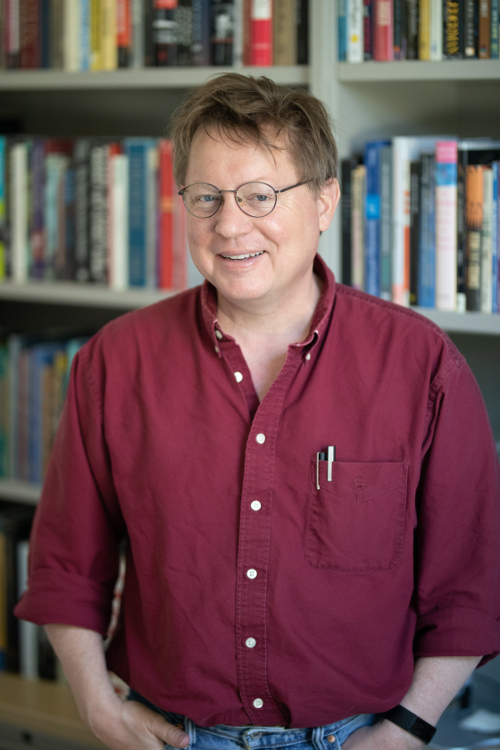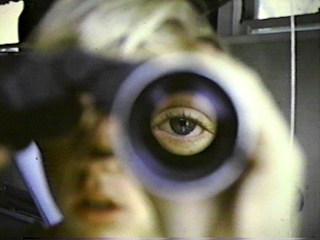Christopher A. Fuchs

Fall 2019 (and in prior years)
The third semester of calculus-based introductory physics. “Contemporary” is used here in the sense that the curriculum planners mean it; in other words, it refers to physics developed between 1900 and 1925. Topics include Einstein's special relativity; the early stages of quantum theory; and applications to atomic, molecular, solid state, nuclear and particle physics.
Textbook: Paul A. Tipler and Ralph A. Llewellyn, Modern Physics, 6th edition (2012)
Spring 2017
The issue of measurement has been a topic of debate since the early days of quantum mechanics, as the founders attempted to reconcile the fundamental features of the theory with seeming contradictions associated with measurement. In recent years, these questions have taken on added practical importance in the context of manipulation and control of nano-engineered structures. This graduate course introduces the student to the language of quantum measurement theory that is necessary to model measured quantum dynamical systems, ideas which are relevant to a number of applications in the emerging area of quantum information such as quantum computing.
Textbook: Michael Nielsen and Isaac Chuang, Quantum Computation and Quantum Information (2011)
Spring 2016
This reading-intensive seminar course for the UMB Honors College explored the philosophy of early American pragmatism and its surprising connection with modern quantum physics.
Textbook: Louis Menand, The Metaphysical Club: A Story of Ideas in America (2001)
Video discussed in class: Richard Feynman, “Probability and Uncertainty: The Quantum Mechanical View of Nature” (1964)
Guest lecturers: Amanda Gefter, Blake C. Stacey
144 slides, 5.1 Mb
A curated collection of videos about or related to QBism
Cambridge University Press (2011)
PDF; also available as arXiv:1405.2390 [quant-ph] (2014)
PhD thesis, University of New Mexico
arXiv:quant-ph/9601020 (1996)
Available online (2002). This collection of letters traces my transition from taking the quantum state's essence as information or knowledge, to being instead freely-chosen Bayesian degrees of belief, and finally to being nothing more than the pragmatic gambling commitments one endorses in any given instance. As I (almost) put it to one of the correspondents in this collection: “I think there is no doubt I've gone through a phase transition. For all my Bayesian rhetoric in the last few years, I simply had not realized the immense implications of holding fast to the view that ‘probabilities are subjective degrees of belief.’ Of course, one way to look at this revelation is that it is a reductio ad absurdum for the whole point of view—and that will be the first thing the critics pick up on. But I view it as a godsend. For with this simple train of logic, one can immediately stamp out the potential reality/objectivity of any of a number of terms in quantum theory that might have clouded our vision. With so much dead weight removed, the little part left behind may finally have the strength to support an ontology.”
Available online (1996). This document contains 578 references that may be useful in answering the following questions in all their varied contexts: “How statistically distinguishable are quantum states?” and “What is the best tradeoff between disturbance and inference in quantum measurement?” References are grouped under three major headings: Progress Toward the Quantum Problem; Information Theory and Classical Distinguishability; and Matrix Inequalities, Operator Relations, and Mathematical Techniques.
Available online (1998). The world we live in is well-described by quantum mechanics. What should we make of that? In a way, the answer to this question was once less positive than it is today. For although quantum theory is a tool of unprecedented accuracy in predicting and controlling the phenomena about us—and by way of that is the basis of our technological society—the intellectual lesson we have come to derive from it has been one largely of limitations. The best place to see this attitude at work is in a standard presentation of the Heisenberg uncertainty relations. It is almost as if the world were holding something back that we really had every right to possess: the task of physics, or so it was believed, is simply to sober up to this fact and make the best of it. In contrast to this textbook lesson, the last five years have seen the start of a significantly more positive, almost intoxicating, attitude about the basic role of quantum mechanics. This is evidenced no more clearly than within the small, but growing, community of workers in Quantum Information Theory and Quantum Computing. The point of departure in both these disciplines is not to ask what limits quantum mechanics places upon us, but instead what novel, productive things we can do in the quantum world that we could not have done otherwise. In what ways can we say that the quantum world is fantastically better than the classical world?
Quantum Information & Computation vol. 3, no. 2 (2003), p. 191.
[PDF]
H. Barnum, C. M. Caves, C. A. Fuchs and R. Schack
Physics Today vol. 44, no. 11 (1994), pp. 11–13.
[PDF]
Physics and Computation (1992), pp. 86–92.
[PDF]
Workshop on Squeezed States and Uncertainty Relations (1992), pp. 83–85.
[PDF]

Department of Physics
University of Massachusetts Boston
100 Morrissey Boulevard
Boston, Massachusetts 02125